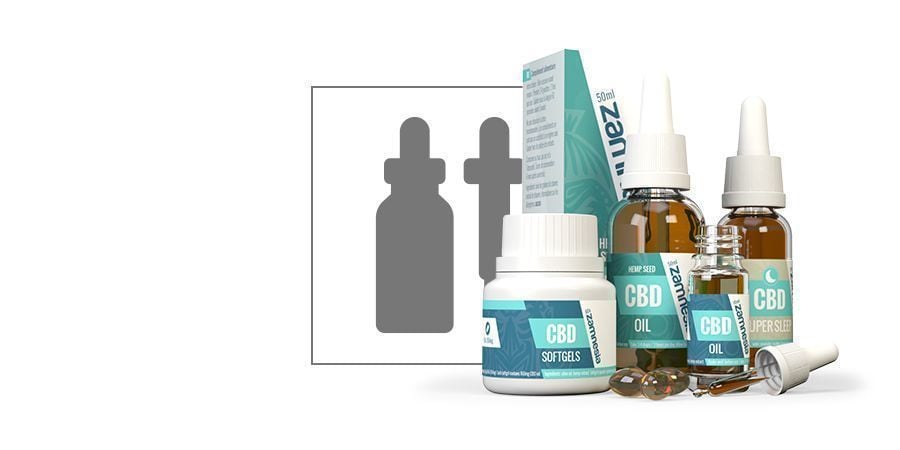What's The Difference Between CBD Oil And Hemp Oil?
CBD has become a household name. With hundreds of CBD products available, it can be difficult to understand the differences. There's a lot of confusion surrounding the distinction between CBD oil and hemp oil. Learn what makes them unique below.
Health food shops and supplement retailers are now selling CBD oils, tinctures, and capsules. Meanwhile, hemp seed is being praised as a nutritious superfood loaded with protein and healthy fats. Manufacturers are processing the crop into protein powders and oils.
This article explains the variation between these two products.
A STORY OF FLOWERS AND SEEDS
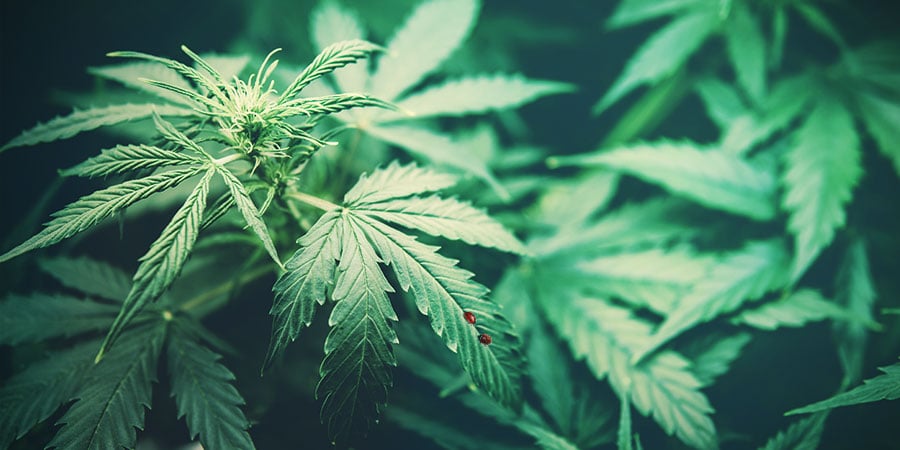
CBD oil and hemp seed oil are made using hemp. Humans have utilised the many industrial applications of this crop—including crafting rope, paper, and canvas—for thousands of years. Almost every aspect of the plant's anatomy has an important use.
The flowers are arguably the most valuable part of the hemp plant, and hold small glands known as trichomes. These crystalline structures produce valuable molecules such as cannabinoids and terpenes, which they exude in a viscous resin. Hemp leaves and stems also contain trichomes, though in vastly lower quantities.
In nature, these molecules serve to protect plants against high temperatures and pests—though humans have found other uses for them. Cannabinoids, in particular, have piqued the interest of scientific researchers.
Hemp flowers are low in THC compared to those of selectively bred recreational cannabis strains. However, they are relatively high in CBD, which makes them ideal for creating CBD oil.
In contrast, manufacturers make hemp oil using the seeds of the plant. The seeds don’t contain cannabinoids, although they are abundant in omega fatty acids and protein. They are a nutritious food source that's processed in a cold press to make oil. Hemp oil has a wide array of applications, and is used in recipes and cosmetics. It’s also available in dropper bottles and capsules as a supplement.
CANNABIS BUDS ARE ANOTHER SOURCE OF CBD
Technically, hemp is cannabis. Cannabis is an umbrella term that covers several species and hundreds of cultivars. Hemp is distinct from most cannabis strains due to its low THC level.
The majority of cannabis cultivars have been selectively bred to produce high levels of THC. However, the increasing demand for CBD has prompted some breeders to drive up the CBD levels in some varieties. There are now strains that produce massive levels of CBD — as high as 20%+ — alongside minimal quantities of THC. These strains produce no psychotropic effect and can be used to make CBD oils and extracts.
THE DIFFERENCE BETWEEN HEMP AND CBD OIL
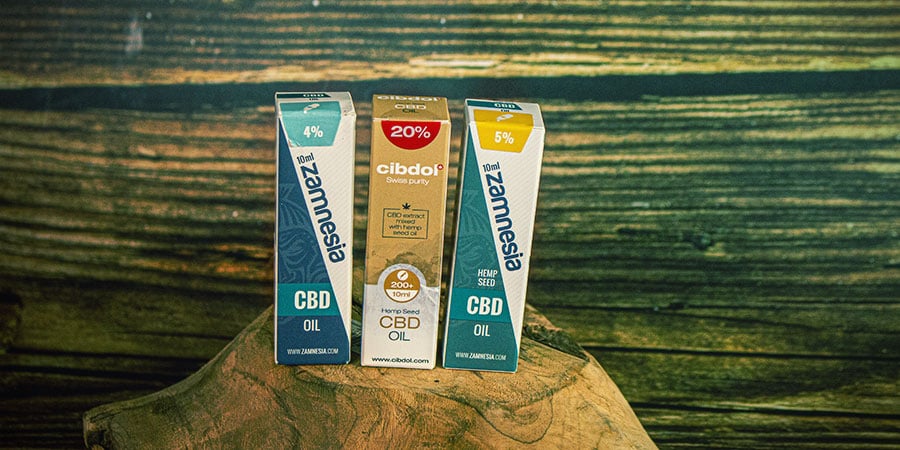
The main difference between these two oils is their chemical composition. CBD oil is a source of cannabinoids and terpenes. Hemp oil is void of cannabinoids. That’s not to say it’s inferior; it’s a great source of nutrients and can complement a balanced diet.
Let’s delve into the specific properties of both CBD oil and hemp oil.
PROPERTIES OF CBD (OIL)
.jpg)
CBD has garnered serious attention from the scientific community. The cannabinoid influences CB1 and CB2 receptors of the endocannabinoid system, a regulatory system in the human body. The molecule also acts on serotonin receptors, vanilloid receptors, and other molecular targets.
This has led to a windfall of studies highlighting potentially beneficial outcomes. It’s important to realise that most studies involve animals or cell lines. They don’t accurately represent how CBD works in the human body, but they do shine a light on how it might operate.
PROPERTIES OF HEMP SEED OIL
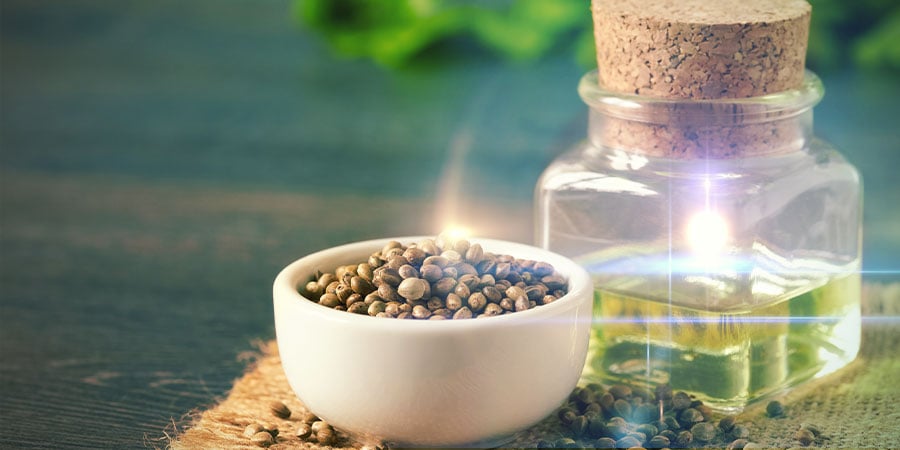
Hemp seed oil doesn’t compare to CBD oil in terms of scientific potential. Its lack of cannabinoids means it doesn’t achieve the same actions. However, it’s an impressive source of nutrients. It's actually a cannabis-derived superfood.
Hemp seeds contain over 30% fat and are rich in omega-6 and omega-3 fatty acids. They serve as a fantastic source of plant-based energy, with protein accounting for 25% of their overall calories.
-
VITAMIN E CONTENT
Data shows that hemp seeds contain 6mg of vitamin E per every 100g of seeds. Vitamin E is a fat-soluble vitamin that helps to balance cholesterol, fight free radicals, contribute to skin health, and may even balance hormones.
-
PHOSPHORUS CONTENT
Hemp seeds contain 1100mg of phosphorus per 100g. The mineral is associated with bone maintenance, detoxification, increased energy levels, dental health, and cognitive function.
-
SOURCE OF POTASSIUM
Hemp seeds offer 900mg of potassium per 100g, which accounts for an impressive amount of the suggested daily intake of 2,000mg. Potassium is an essential mineral that may play an important role in anxiety and stress relief, as well as heart and kidney disorders. It serves as the third most prevalent mineral within the human body.
Potassium deficiency symptoms can manifest in anaemia, heart palpitations, and headaches. The mineral contributes to bone health, brain function, and muscular strength, among other benefits.
-
SOURCE OF MAGNESIUM
Hemp seeds contain 450mg of magnesium per every 100g, smashing the recommended daily intake of 400mg per day. Again, this secures hemp seeds as a great food for achieving specific dietary and nutritional requirements. Magnesium plays a vital role in helping to increase energy, ease anxiety, relieve muscle aches, prevent migraines, and encourage heart health.
-
SOURCE OF VITAMIN B1 AND B2
Hemp seeds contain 1.3mg of vitamin B1 per every 100g, closing in on the recommended daily intake of 1.5mg each day. Vitamin B1, also known as thiamine, plays an integral role in the health of the nervous system, hair, skin, eyes, mouth and liver. Hemp seeds contain 1.2mg of vitamin B2 per 100g. Also known as riboflavin, B2 plays a vital role in energy production.
DIFFERENT PRODUCTS WITH DIFFERENT FUNCTIONS
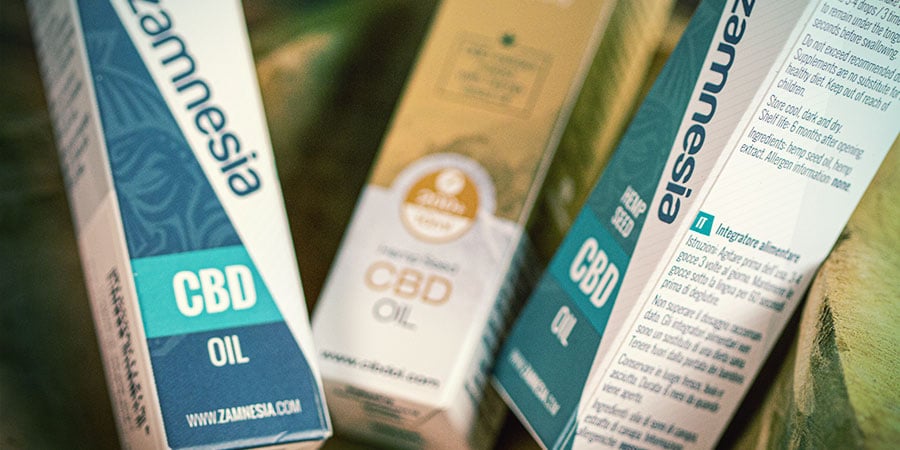
CBD oil and hemp seed oil are hard to compare. They are different products that offer distinct benefits. The cannabinoid content of CBD oil makes it a valuable option for some users, whereas hemp seed oil is a food supplement rich in vital nutrients.
-
 4 min
6 August 2021
How To Use CBD: Which CBD Product Is Right For You?
CBD is becoming an increasingly popular dietary supplement, yet for the unfamiliar, knowing the most suitable way to take CBD can be a challenge.
4 min
6 August 2021
How To Use CBD: Which CBD Product Is Right For You?
CBD is becoming an increasingly popular dietary supplement, yet for the unfamiliar, knowing the most suitable way to take CBD can be a challenge.
-
 5 min
26 October 2020
What's The Difference Between Cannabis And Hemp
Hemp and cannabis are commonly confused. Although they have a plethora of different uses that have the potential to change the medical and industrial worlds, these plants share the exact same roots.
5 min
26 October 2020
What's The Difference Between Cannabis And Hemp
Hemp and cannabis are commonly confused. Although they have a plethora of different uses that have the potential to change the medical and industrial worlds, these plants share the exact same roots.
-
 5 min
28 August 2020
Top 10 Popular Uses For Hemp
In a world where we have become used to disposable, synthetic, and environmentally damaging products and processes, could hemp be the secret weapon in this fight against the "plastics age"? A...
5 min
28 August 2020
Top 10 Popular Uses For Hemp
In a world where we have become used to disposable, synthetic, and environmentally damaging products and processes, could hemp be the secret weapon in this fight against the "plastics age"? A...
-
 3 min
15 January 2019
CBD Oil Benefits: Should You Use It?
CBD is fast becoming the star of the cannabinoid family. Taken in oil form, CBD is utilised for many purposes. Here's the scoop on why you should use CBD oil.
3 min
15 January 2019
CBD Oil Benefits: Should You Use It?
CBD is fast becoming the star of the cannabinoid family. Taken in oil form, CBD is utilised for many purposes. Here's the scoop on why you should use CBD oil.














 United States
United States


